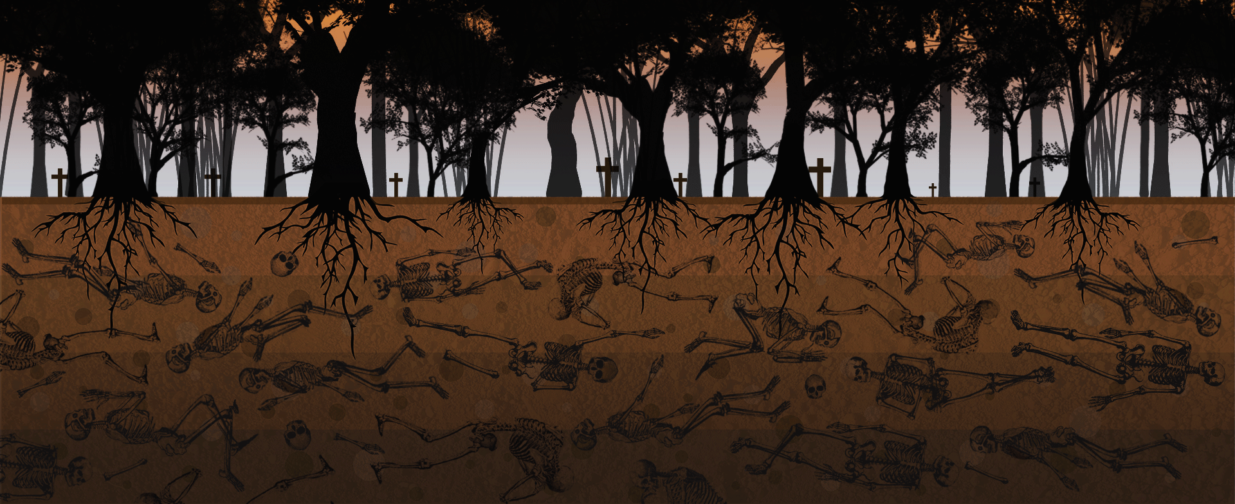
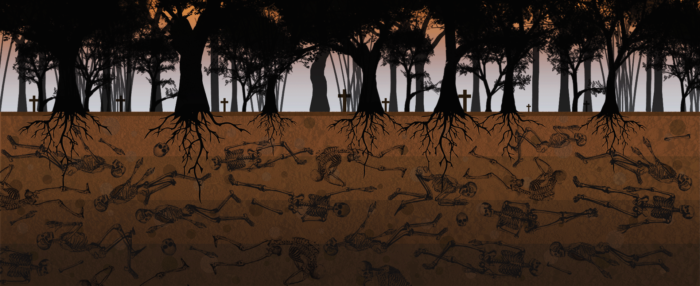
The fine line that separates Norte de Santander and Venezuela hides burial grounds of disappeared people from both sides, victims of violence by illegal armed groups that move at ease between both countries. Their relatives travel through trails, sidewalks and even cemeteries on the Venezuelan side, in search of their missing ones, without the help of any government.
|
Getting your Trinity Audio player ready...
|
Carmen Cecilia Torres Maldonado has been living an ordeal for seven years and two months. Exactly since April 9, 2010. His only son, Sergio Omar Abril Torres, disappeared that day. Since then she has had no peace of mind. Such has been the change in her life, that she stopped working in the school near her home, in the neighborhood Trigal del Norte, in Cúcuta, to dedicate herself to the search of her firstborn.
At the time of his disappearance, Sergio Omar, according to his mother, had been working as a motorcycle-taxi driver in the El Escobal neighborhood of Cúcuta for two years. The young man's job was to take people to Ureña, a Venezuelan community after the international bridge Francisco de Paula Santander, in exchange for money.
Carmen remembers that on April 9, her 26-year-old son went to work as he had been doing for two years. "He left like every day at 6a.m. and, as some of his companions told me, my boy worked that day until 4p.m. when it started to rain very heavily". From that time, no one ever saw Sergio Omar again.
After waiting in vain all night, the mother went out the next day to look for him. She arrived at the place where he used to work and asked his son's companions for possible causes of his disappearance. But she did not get any. Then Carmen remembered that before he left to work, Sergio Omar made a comment. "Mom, what do you think two men came in a taxi yesterday? They called for me and asked, 'Is it true that you're playing the paraco?' " (NT: 'paraco' is a colloquial form to call the paramilitary soldiers).
The distressed woman asked her son what he had answered. "He replied that no, that he did not know anything about it and that all he did was to work".
His son added that one of the men after hearing him pulled out the cell phone and called someone, with whom he spoke for several minutes. "Then they told Sergio to stay calm, to keep working and that nothing had happened". The strangers left. But strangely, the next day the boy disappeared and until this day no one has known anything about his whereabouts.
"They told sergio to stay calm, to keep working and that anything had happened."
After a year of Sergio's disappearance, a stranger arrived at Carmen's house and assured her that his firstborn had been killed. "The guy told me that my son was buried in the La Isla sector, on the third track, the one known as La Mona, which runs from El Escobal to Ureña. He indicated me the coordinates and told me: 'He is passing the Táchira River, close to a cave, which is made by a few branches' ".
The woman, desperate for what she had been told, rushed to report the new information to the Colombian authorities, to whom she had already made a formal denunciation about the disappearance of her son. She asked the officials to accompany her, but they refused, as they were not allowed to work on Venezuelan soil. Then she decided to go and check for herself.
"I arrived to that place, which was on an islet. There were buried shoes and pieces of women's clothing. In that place there must be many more people buried", she said. Although she removed some dirt, she found nothing that indicated that Sergio was in that place.
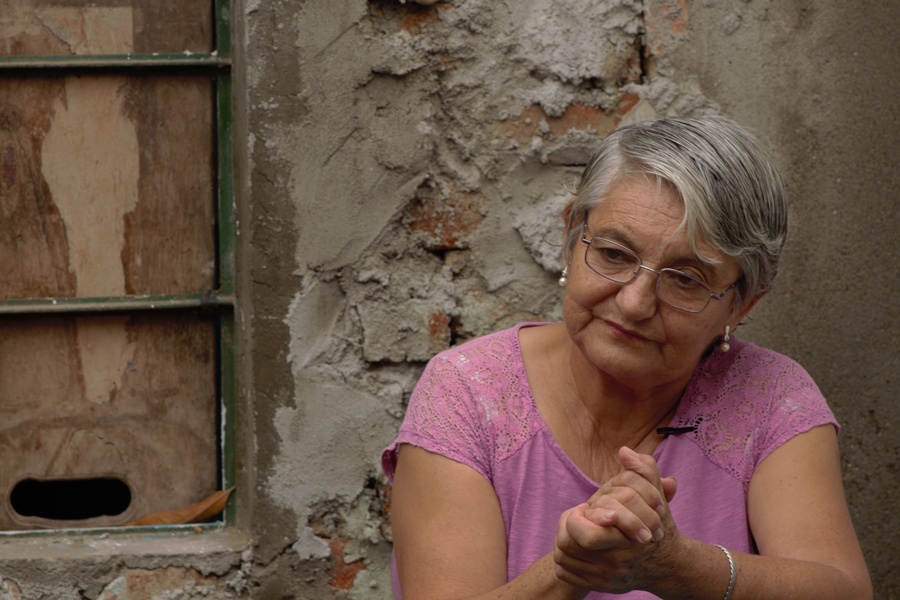
Like her, there are thousands of mothers, fathers, brothers, uncles, grandparents, cousins and nephews in Norte de Santander and the state of Táchira looking for relatives who one day left and did not return. The stories are very similar. The only difference among them is the name of the illegal armed group acting on the Colombian-Venezuelan border involved. And the number of disappeared people is increasing, and all for the change or transformation of these armed groups, according to what has been told by the Progresar Foundation, who has spent 20 years investigating this matter.
Zoraida Meneses also mourns her son Carlos Alberto Meneses, who was missing for five months this year. In May, she received a call to inform her that her son's body had appeared on a trail leading to La Mulata, another community in Venezuela. The body of the young man, 22 years old, was found half-buried and in a state of advanced decomposition. The woman had to wait almost six months for the Institute of Forensic and Legal Medicine to confirm it was Carlos.
"My son disappeared on December 12, when he was riding a red Bera 200(*) motorcycle, via Santa Cecilia-San Faustino, rural area of Cúcuta", tells the woman. (NT: brand and model of the motorcycle). On that day the Venezuelan government had closed the border as a result of the elimination of the 100 bolivars bill, the basis of a retail economy that includes smuggling of fuel and foreign exchange. "Carlos Alberto had some money that he used to buy gasoline that he carried on his motorcycle. Since then he disappeared. Two days later they found his vehicle on the side of the road, with the keys still attached", narrated the mother.
Immediately, Zoraida embarked on the task of searching through the border trails, without results. The law of silence prevails along these roads, where illegal armed groups coexist with military authorities - both on the Colombian and Venezuelan sides - fed by smuggling activities that never cease.
"It has been very hard because it is my son the eldest, the child that I spoiled, I consented. For a mom it's very difficult," Zoraida Meneses.
Five days later the authorities communicated with the woman and informed her that they should take samples of her DNA to contrast it with that of a body that had appeared on the banks of the Pamplonita River. "Legal Medicine took the tests on December 21 and told me that the results would take between six months and a year", Zoraida recalled. From there she began the struggle for the government to expedite them.
After five months of insisting, the forensic institute informed her that the remains were of Carlos. Not knowing whether to laugh or cry, she promptly got ready and went with her family to reclaim the corpse and bid the last farewell to her son. Now she only hopes that one day the Colombian authorities will clarify the heinous crime.
The trans-border odyssey that lived Carmen and Zoraida is not new. It is the phenomenon of forced disappearance, which has been occurring for more than 20 years in all corners of the country.
In the country there is no exact number of people who one day left their home and did not return, and the statistics of the official instances - Legal Medicine, Prosecutor's Office, police and Ombudsman's Office - do not coincide with each other.
The government has set out to shed light on this problem beginning with the creation of a truth commission on forced disappearance, as established in the peace agreement that was signed with the Revolutionary Armed Forces of Colombia (FARC), after more than half a century of conflict. The work of this group, which has not yet begun, will have the challenge of clarifying the number of people missing at the border, which, according to human rights organizations such as the Progresar Foundation, are increasing.
The prosecution and police say that the number of missing persons is not accurate because many relatives refrain from reporting
There is a consensus among them about this crime occurring most frequently in populations in Norte de Santander: Cúcuta, Villa del Rosario, Puerto Santander and Tibú. In the last two decades, around 3,600 people have disappeared in this department, according to the numbers of the Department of Legal Medicine, attached to the National Prosecutor's Office. The Prosecutor's Office and the Police claim that these numbers are not accurate because many families refrain from reporting, either because they do not want it or because they are warned not to do so by illegal armed groups.
Progresar Foundation, a non-profit organization, is one of the few that has worked hard with relatives of the disappeared at the border. In 2010 they recorded - in the book Tantas vidas arrebatadas (*) - "a high number of forced disappearances in Cúcuta, Los Patios, Villa del Rosario, El Zulia, Puerto Santander and San Cayetano. (NT: Book's title: So many lives taken). They found out that illegal armed groups use private vehicles and weapons to intercept people and subdue them. Nobody saw these victims again, because they were buried in common graves made in the border line, either in Colombia or Venezuela".
This criminal practice has been recognized by former leaders of irregular groups. Jorge Iván Laverde Zapata, former commander of the demobilized block Fronteras, of the extinct United Self-Defense Forces of Colombia, affirmed for this work in an interview that was made in Antioquia, where he lives today, after leaving prison, that the disappearance was a very common practice for this illegal armed group. "To divert any information, either in Colombia or in Venezuela, we would grab the person, kill them and bury them, or throw the corpse into the river. If we decided to let it appear, we left it on the other side of the river, so there would have been no investigation. In Venezuela the authorities do not overthink about the dead that are not from there". Laverde today collaborates with justice to help locate the disappeared, as it is enforced by the Law of Justice and Peace to which he submitted when he decided to demobilize. This armed group does not have an exact number of how many people disappeared. They estimate some more than 5,000 dead and missing in Norte de Santander.
This confession adds to the one made by the paramilitary leader Edilfredo Esquivel Ruiz, in May 2009. He said that when the holocaust of the 'paras' began in the border area in 2000, he was able to verify with a Venezuelan National Guard official that many of those killed and disappeared by his illegal group were buried in the Jesús María Semprún municipality, from the Zulia state. This situation generated protests among local fishermen.
Wilfredo Cañizares, director of the Progresar Foundation, explained that in the 1990s forced disappearance had a political connotation, because both the guerrilla and the public force used it as a weapon to attack the enemy. Over the next decade the conflict changed, with alliances between drug traffickers and the armed groups, and the practice continued. Then it got worse when the paramilitary forces joined. "No longer disappeared just a person, but all their family. From 2005, those groups born from the failure of the negotiation with the self-defense forces began to disappear people for any trifle. All this has a common thread. Even today in Cúcuta and the metropolitan area there is people disappearing".
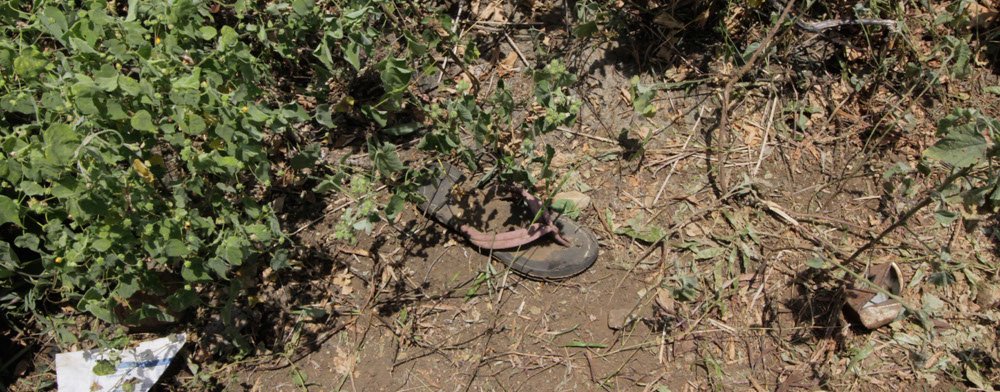
The lack of interest in carrying out exhaustive investigations when a grave or a corpse is found in the border and thus help dozens of people who wish to clarify the disappearances of their relatives, is not exclusive of the Venezuelan authorities. In Colombia, despite the guidelines of the Prosecutor's Office and the Police against forced disappearance, there are few results. The absence of official documents in this regard prove it.
A clear example is that the authorities do not have more than 10 people dedicated to investigate disappearances. This portal was able to verify that the Metropolitan Police of Cúcuta only has two plant officials to carry out these investigations, whereas the Technical Corps of Investigation of the Prosecutor's Office, has three officials. Until less than five years ago, the Government ordered the creation of a specialized unit to deal with forced disappearances which is attached to the Prosecutor's Office, but little is known of its progresses. They were asked for an interview. So far, it has been the confessions of paramilitary or guerrilla men who have guided the authorities to the places where they have buried the people, who have then identified and delivered to their relatives.
Colonel Javier Barrera, commander of the Metropolitan Police, said that his institution has a protocol to receive complaints and investigate missing persons. But in relation to the border, Barrera took distance, arguing that those zones are controlled by the Army. "In the Constitution of Colombia it is very clear that the border limits are monitored by the National Army", he said.
The Army, on the other hand, affirmed that their mission is to protect the national security, for which they maintain a daily struggle against armed groups. However, their patrols on the border are very few and in some neuralgic points there are only small groups of soldiers.The Venezuelan locations that have been used by Colombia's illegal armed groups as a spillway to commit disappearances and murders are the communities of Llano Jorge, San Antonio del Táchira, Boca de Grita, Ureña, La Mulata and their surroundings. Today it is not uncommon to see groups of Colombian or Venezuelan families in the morgue of the central cemetery of San Cristóbal, looking for news of their missing relatives, as authorities frequently find graves with corpses on the border.
The Progresar Foundation has said that the Venezuelan scientific police (the Corps of Scientific, Penal and Criminal Investigations) is also far from optimizing results on investigations of violent incidents on the border. Beginning with the information obstruction on the missing people numbers. "While the action to counter the violence on the border, depends on the two states and the relations they have", declared Cañizares.
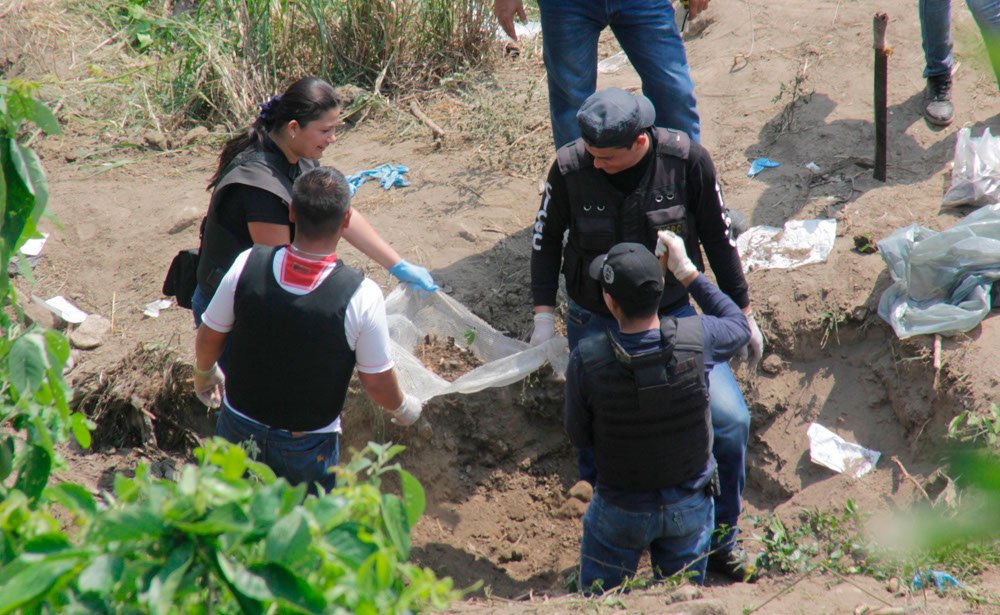
Progresar indicated in its book that in the morgues of the state of Táchira there are shortcomings in the expert tests that must be applied to violent cases, such as homicides or disappearances. In the Venezuelan border, they point out, there is no infrastructure or protocols to sort out processes and information to clarify these crimes. The morgue and the central cemetery of San Cristóbal have taken care of corpses that are not claimed, many of which would be Colombian.
Ángel Cardona Mogollón works there since 11 years ago. He assures that many corpses arrive to that place without identifying because the morgue of the Central Hospital of Táchira’s capital city is collapsed. If families do not claim them, they are buried. "In recent years this has increased. Many dead are arriving from border areas near La Fría, El Piñal and other locations. Worst of all is that many of those bodies are buried unidentified", the official explained.
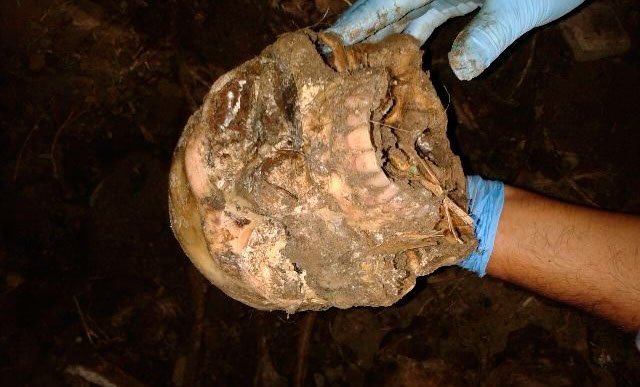
This year, at least five bodies are being received every week in this cemetery from the borders between Colombia and Venezuela, according to Cardona. This year they have dug 10 common graves, where there are buried between 10 and 15 corpses, in each one. Many of those dead may be Colombians or Venezuelans disappeared by the irregular forces operating at the border.
"Until Colombia and Venezuela do not reach an agreement and build a common instrument, the border will continue to be used by illegal armed groups to do whatever they want, disappearances will not stop and will continue to increase as has happened so far", said Cañizares.
Former combatants of what was the largest guerrilla in Latin America - who separated from the peace agreement signed in 2016 - are in a process of transition and rearrangement of criminal structures, where illicit drug trafficking and illegal mining continue to be the main focal points, now in Venezuelan territory. They have met with indigenous peoples and communities in Amazonas to formalize their presence in the territory, affirming that they have the support of the Venezuelan Government. But they also move to lands of the Orinoco Mining Arc, where they even control coltan mines.
In business, the entrepreneurs who have amassed fortunes to the rhythm of the schizophrenic chavista economy stand out. A Peruvian-Spanish citizen has developed a real emporium in the last 13 years. Once pointed out as the potential financial channel between the Venezuelan government and the Spanish political party Podemos, it could only be confirmed that he works shoulder to shoulder with the military and every day incorporates new businesses to his emporium. Atahualpa Fernández continues to gain ground among the entrepreneurs protected by the ruling party.
The porous border has loaded the inhabitants of the Colombian Amazon with the cases of its Venezuelan neighbors. Shortage and indifference has led patients to seek treatment even in Bogotá. Meanwhile in San Fernando de Atabapo, the transmitting mosquito has folded people back into their homes. But "God exists." So says a mural that receives visitors at the port.
The narrow victory of the No in the plebiscite called by the president of Colombia, Juan Manuel Santos, to endorse the peace agreement reached by FARC in Havana, Cuba, represents a stop along the way, perhaps the last stop, before the internal conflict ceases. With the imminent conversations that ELN will also initiate in Quito, the relatives of the persons disappeared in the state of Barinas wonder if their relatives, alive or dead, remain in the hands of FARC.
When Vice President Delcy Rodríguez turned to a group of Mexican friends and partners to lessen the new electricity emergency in Venezuela, she laid the foundation stone of a shortcut through which Chavismo and its commercial allies have dodged the sanctions imposed by Washington on PDVSA’s exports of crude oil. Since then, with Alex Saab, Joaquín Leal and Alessandro Bazzoni as key figures, the circuit has spread to some thirty countries to trade other Venezuelan commodities. This is part of the revelations of this joint investigative series between the newspaper El País and Armando.info, developed from a leak of thousands of documents.
Leaked documents on Libre Abordo and the rest of the shady network that Joaquín Leal managed from Mexico, with tentacles reaching 30 countries, ―aimed to trade PDVSA crude oil and other raw materials that the Caracas regime needed to place in international markets in spite of the sanctions― show that the businessman claimed to have the approval of the Mexican government and supplies from Segalmex, an official entity. Beyond this smoking gun, there is evidence that Leal had privileged access to the vice foreign minister for Latin America and the Caribbean, Maximiliano Reyes.
The business structure that Alex Saab had registered in Turkey—revealed in 2018 in an article by Armando.info—was merely a false start for his plans to export Venezuelan coal. Almost simultaneously, the Colombian merchant made contact with his Mexican counterpart, Joaquín Leal, to plot a network that would not only market crude oil from Venezuelan state oil company PDVSA, as part of a maneuver to bypass the sanctions imposed by Washington, but would also take charge of a scheme to export coal from the mines of Zulia, in western Venezuela. The dirty play allowed that thousands of tons, valued in millions of dollars, ended up in ports in Mexico and Central America.
As part of their business network based in Mexico, with one foot in Dubai, the two traders devised a way to replace the operation of the large international credit card franchises if they were to abandon the Venezuelan market because of Washington’s sanctions. The developed electronic payment system, “Paquete Alcance,” aimed to get hundreds of millions of dollars in remittances sent by expatriates and use them to finance purchases at CLAP stores.
Scions of different lineages of tycoons in Venezuela, Francisco D’Agostino and Eduardo Cisneros are non-blood relatives. They were also partners for a short time in Elemento Oil & Gas Ltd, a Malta-based company, over which the young Cisneros eventually took full ownership. Elemento was a protagonist in the secret network of Venezuelan crude oil marketing that Joaquín Leal activated from Mexico. However, when it came to imposing sanctions, Washington penalized D’Agostino only… Why?
Through a company registered in Mexico – Consorcio Panamericano de Exportación – with no known trajectory or experience, Joaquín Leal made a daring proposal to the Venezuelan Guyana Corporation to “reactivate” the aluminum industry, paralyzed after March 2019 blackout. The business proposed to pay the power supply of state-owned companies in exchange for payment-in-kind with the metal.